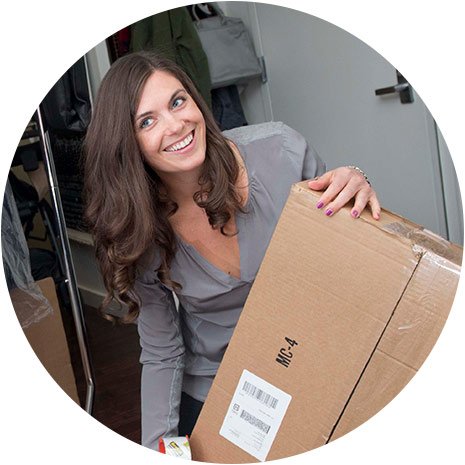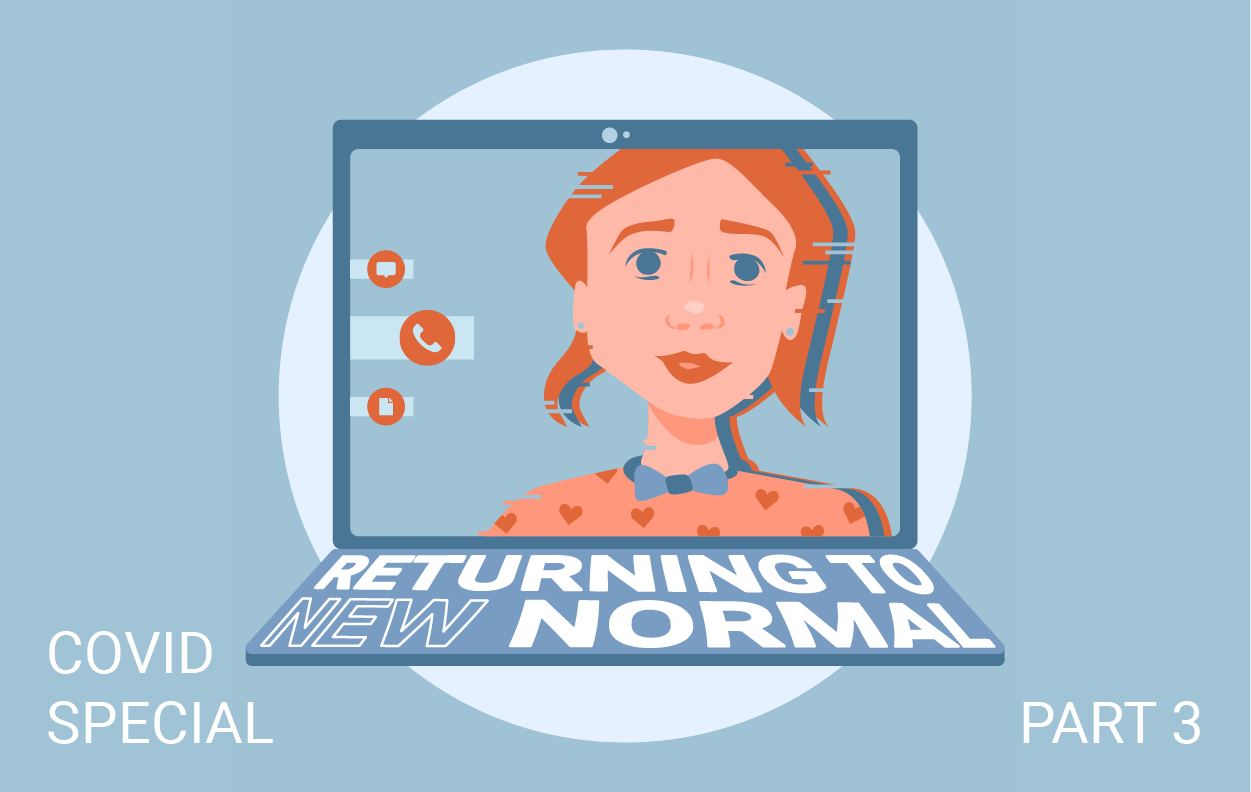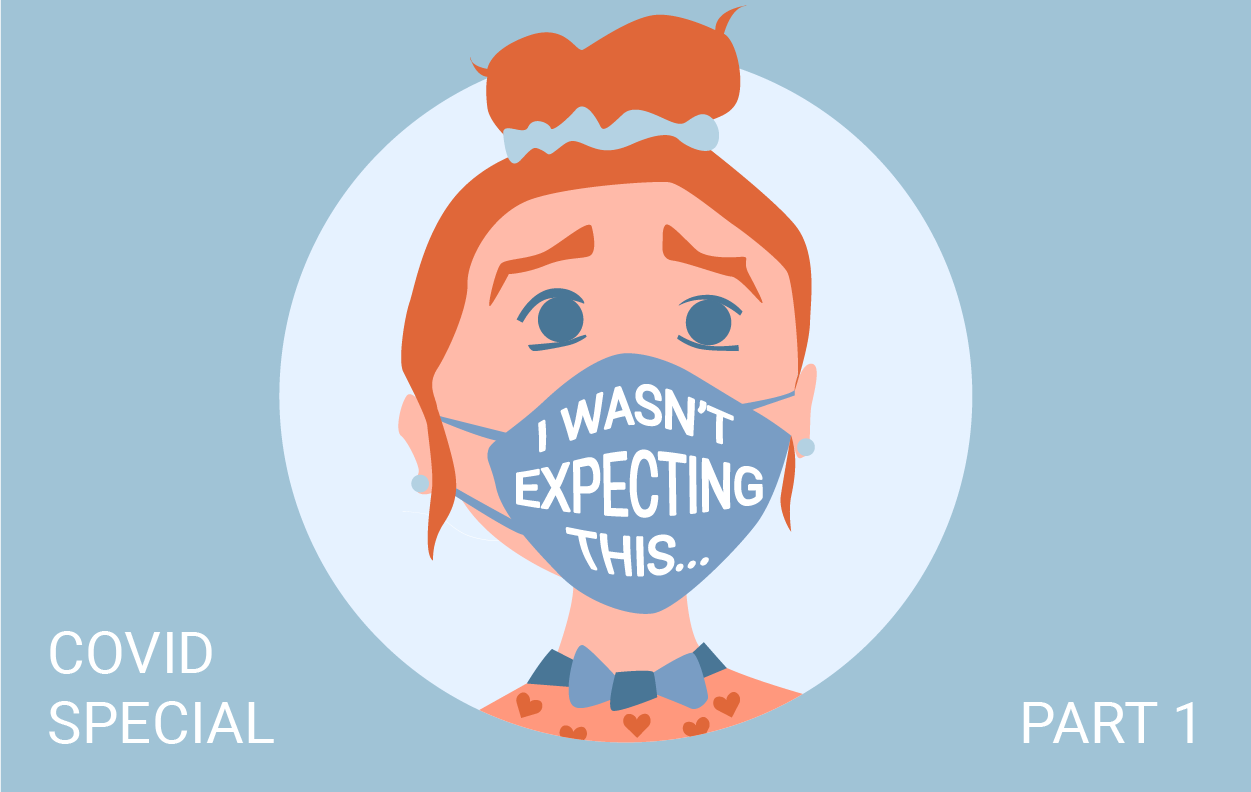
Covid-19 special part II
How do you run a business during lockdown?
MAKING IT WORK PODCAST
COVID-19 Special | Part II
How exactly do you run a business during lockdown? From Zoom meetings to pandemic-proofing warehouses, it seems this crisis has kickstarted a brand new way of working.
In the second part of this Making It Work special, we ask our entrepreneurs how their teams have adapted during this global crisis and what they think the future will hold for their businesses.
So how do you run a company under the constraints of COVID-19? And will things ever go back to how they were?
Listen now
SHOW NOTES
Long-distance entrepreneurs – how do you run a small business during lockdown?
If there’s a phrase that’s been overused recently more than ‘new normal’, then it’s ‘isolation’. And as much as the word itself has to come to grate, that’s no match for the reality of separation from friends, family and yes – colleagues.
It’s a tricky situation for small business owners. Being responsible for the wellbeing of your staff and your customers is one thing – but who’s looking after you? It’s always been lonely at the top, but has it ever been this lonely?
It all happened so fast
One day, the buzz of voices, the burble of the coffee machine, the arguments over the office radio. The next day, nothing. “Being here by myself is so opposite of what this company is,” says David Patrick, owner of (square) skateboard wheel manufacturer Shark Wheel. “This company is a vibrant, loud, noisy, chaotic, fun place to be and now, it's like a graveyard. There is just nobody here and there's no sound and there's no nothing.”
It wasn’t quite as drastic for Dana Donofree, whose AnaOno business makes lingerie for breast cancer survivors – but changes needed to be made. “We are an essential business, so we are able to still perform our work responsibilities and service our customers. However, we have scaled back to offering just office hours from Monday, Wednesdays, and Fridays, to keep the social distancing as strong as we can.”
Shifts happen
David has imposed a similar working pattern but adds, “We're kind of fractured physically and time-wise. There's just no interaction.”
Diana Ganz, co-owner of SuitShop (formerly The Groomsman Suit) has gone down the route of home working, but sees it as a short-term fix. “We've always let our team work from home one day a week, just to get projects done, and I don't know if we'll extend that policy.” She’s found that email and Slack are no substitute for face-to-face interactions. “I think where we're struggling now is the ability to be just like, ‘Oh, hey, did you hear about this?’ It requires more effort. The nice thing about being all together is the rapid-fire communication that can happen, whether it's about a customer or about a marketing campaign. We can just solve those problems in real time.”
Distance working isn’t really an option though when your business operates around a warehouse – or several, as Danny, the co-founder of Perishable Shipping Solutions, has found. “We’re basically trying to operate with a hand tied behind our back. Because of the virus and wanting to keep our staff safe and healthy, we have divided into split shifts. So basically, we have two half shifts going on each day where there are half the supervisors, half the staff members…”
Coping mechanisms
But there’s more to business than business. Keeping the lights on is of course important, but it’s not easy to stay focused and positive when the social aspect of social distancing starts to fade away.
“I'm just going to be perfectly honest,” says David, a person who is naturally upbeat and positive. “I do not like being alone. I like it where there's a hub of people and we're all here together and ideas are flying back and forth… and now it's 10 and 12 hours a day of just me by myself.” David has found that becoming a ‘Zen dude’ has helped him embrace the changed circumstances, along with focusing on his family.
“I go outside, and I realize that the sky is not falling, and that people are smiling and laughing, and the sun is shining.”
Like David, Dana has found that it’s the external things that are helping get her through. “I go outside, and I realize that the sky is not falling, and that people are smiling and laughing, and the sun is shining. And there's just this reality, to say, I'm here, and I'm breathing today.” But it’s a different story in the workplace. “What I'm striving to do is work on boundaries for myself. Because I think what we're finding now in a world of isolation, we are actually striving to have more communication.”
Is technology helping?
That sounds great in principle, but “…that communication can really suck up your entire day. So I find myself on Zoom calls, every hour of every day, and then I'm not getting my work done, which then rolls into the evening hours.” It’s a reminder that the helpful tools that are getting people through the pandemic can also be a hindrance.
But it depends how they’re used, too. “While our sales are down,” says Diana, “We're still getting questions from couples. We're still getting inquiries.” She’s been using ZenDesk to ensure that her team are still collaborating. “We get exchange requests, random customer needs. I don't know what we would do without it.”
The lives of others
Which is a reminder that there are other people in the equation – or in the case of furloughed staff, temporarily outside of it. That’s a hard call to make, particularly when you’re feeling isolated.
“We had to furlough several of our employees,” says Dana. “And that's been a very tricky thing, as a business owner, because even though the business has gone, it doesn't mean that the work is less.” The prospect of taking on extra workload only makes the isolation harder to deal with. “My feeling is that I'm just stomping away in black sludge, because you can't make any decisions when you don't know what's going to happen. Longer closures, more enforcement – it's constantly changing every day.”
Danny’s problems have been the opposite. Operating the revised shift pattern has led to him increasing his staff level by 33%. “It's inefficient, but we believe it's the best way for us to one, operate in a safe and healthy way, and two, be able to still operate in case somebody on our team happens to contract the virus and we need to put half the staff for that particular warehouse on quarantine.”
The entrepreneurs






Dana Donofree






Danny Catullo






Diana Ganz






David Patrick
Adaptations from all over
With the social distancing measures that Danny’s put in place, it means that an increase in staff doesn’t – and can’t – result in an increase in contact. But in a lonely world, lifelines have come from unexpected quarters. “What we're seeing is an influx of people who aren't in our industry actually helping our workers.” That’s been anything from anonymous donations to people “that have sent me money to be able to buy pizza or lunch or breakfast or donuts or coffee for our crew, and really just being out there and appreciating the essential workers.”
For Danny, that’s been an eye-opener. “I think this virus has shed light on how the nurses, the janitorial staff at hospitals, the pick packers at warehouses… unheralded workers in this economy. I think the country is starting to see how important they are to our economy.”
And David also made use of the zen time to come up with an idea in this direction. Realizing that there was a gulf between the demand and supply of PPE, he decided to pitch in and 3D print his own. “I had to go buy a lot of hardware and I had to set all that hardware up… but when you go out there and you buy 13 3D printers…” This was a massive undertaking, and one that’s still ongoing.
“It's adding about four hours a day to my life. So, I'm coming in two hours earlier and I'm leaving two hours later than I would normally do because I can't fit that plus my regular work into a single day. So, four hours a day, seven days a week.”
It’s not an option open to everyone but it does show that there are ways of dealing with isolation… you just have to be creative about it.
Listen to the episode
More episodes



Covid-19 special part III: How are the
entrepreneurs four months on?
In the third episode we never planned to make, we check in on the four entrepreneurs to see how they're weathering the COVID-19 storm. Have any temporary measures brought about lasting changes? And will it be enough to save their businesses?



Covid-19 special part I: How are small
businesses staying alive?
For all of our entrepreneurs, the global pandemic has brought massive change – lots of challenges, some difficult decisions, and even a few opportunities.